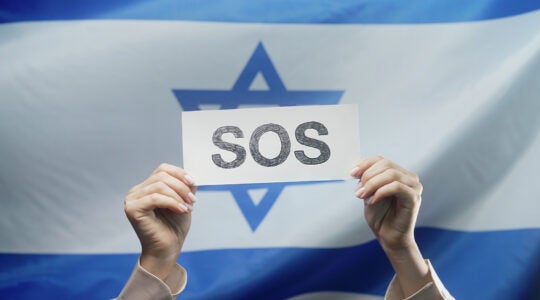Pioneering theologian and Zionist Martin Buber believed in the sanctity of relationships and their possibilities for profound meaning. Life’s most significant interactions he termed “I–Thou.” A “Thou” can be any important “other” in our lives. “I” is each of us.
The identity of “I” is complex. Each of us is the sum of nature and nurture, singular experiences and collective narratives that shape not just our personalities and aspirations but our understanding of the “Thou” of the wider world and our sense of duty to it. Indeed a “Thou” can be as individual as a sibling, a spouse or a child, or as inclusive as the family of humanity … or the Jewish community.
In an “I-Thou” encounter, partners are fully present for each other, concerned with one another’s needs, hopes and fears, but never subsumed by each other. While parties to an “I-Thou” dynamic will almost certainly influence one another, a healthy relationship permits each to maintain its identity and deeply-held beliefs.
The “I-Thou” between Israel and liberal American Jewry has broken down. The Israeli right insists we who abide in the safety and security of America don’t fully grasp the dangers of the Middle East that only those who live in Israel and send their children to fight for the state will ever truly understand. Deputy Foreign Minister Tzipi Hotovely’s recent critique of American Jewry may have been impolitic, undiplomatic and offensive, but it wasn’t altogether wrong. Most of us don’t know “how it feels to be attacked by rockets” or “experience what Israel is dealing with on a daily basis.” Nor, her colleagues claim, do we appreciate the political challenges of Israel’s multi-party system. And while I am not naïve to Israel’s realpolitik, I don’t live it. Liberal American Jews cannot presume the Israeli government will forsake coalition partners, support religious pluralism and seek peace with the Palestinians simply because we wish it. Only Israelis can effectuate those changes.
But by the same token, the Israeli government cannot expect liberal American Jews to abandon our principles and support Israeli policies any more than we would support American policies our principles impel us to question or reject. We will not stand idly by while Israel’s leadership accedes to ultra-Orthodoxy’s demands and discriminates against progressive Jewish denominations and secular Israelis who choose non-Orthodox marriage or divorce. We will not remain silent when we perceive Israel’s government as failing to consider the national aspirations of the Palestinian people alongside Israel’s own vital security requirements, a concern Buber himself voiced. Whether President Trump’s decision to formally recognize Jerusalem as the capital of Israel that Jews have always believed it to be advances peace or hinders it remains to be seen. But liberal American Jews don’t need permission to ask the question. A healthy “I” maintains its sense of self.
Israel has much to offer historically and culturally to American Jews; it is the land of our people’s birth, our spiritual home. And American Judaism has much to offer Israel in the ways of religious innovation and pluralism. We need each other and must seek the best for each other, always defending each other against unjust attack, which Israel endures constantly on the American college campus and in the halls of the United Nations. But we cannot make decisions for each other, and we remain fully within our rights to critique each other.
There are times when we don’t like those we love. Still we go on together because of our love. “I-Thou” is not the only way we relate to the “others” in our lives. More often we exist in what Buber called the “I-It” realm, where our relationships are more functional than deep. Yet Buber taught that with patience the “I-Thou” can be restored, as it can be between Israel and liberal American Jewry. Governments change. External crises emerge eliminating the luxury of internal disputes. But asking liberal Jews to check their liberal values at the door will not win their support, even for the state whose founding represents the greatest project of justice for a persecuted people the world has ever known.
Rabbi Joshua M. Davidson is the senior rabbi of Congregation Emanu-El of the City of New York.
The New York Jewish Week brings you the stories behind the headlines, keeping you connected to Jewish life in New York. Help sustain the reporting you trust by donating today.





